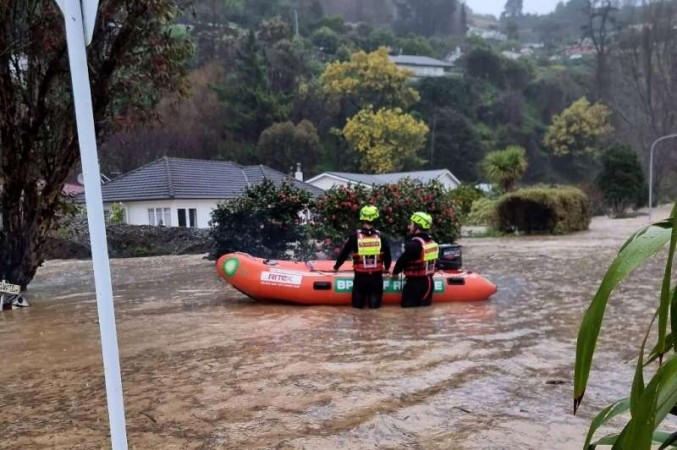
New Zealand has experienced its wettest and warmest winter on record, scientists said Friday against the backdrop of widespread flooding last month on the South Island. For the third consecutive year , New Zealand recorded its warmest winter since temperature records began in 1909.
The average temperature nationwide was reported to be 9.8°C (49.64° F), which is 1.4°C warmer than typical, according to researchers at the National Institute of Water and Atmospheric Research. Climate change "is strongly contributing to New Zealand's temperature trend," according to institute scientist Nava Fedaeff.
For the first time, each of the three winter months' temperatures was above average by more than 1.2°C. Six of the ten warmest winters on record in New Zealand have happened since 2013.
This winter was also the wettest since rainfall records started in 1971.
Last month, severe weather struck New Zealand, particularly the South Island where significant flooding necessitated the temporary evacuation of hundreds of homes.
States of emergency were announced in Nelson, Tasman, the West Coast, and Marlborough as a result of the downpours, which were caused by an atmospheric river of moisture, a tropical phenomenon.
Fedaeff claimed that the confluence of multiple significant rainfall events that "hit practically every section of the country at some point" resulted in New Zealand's wettest winter.